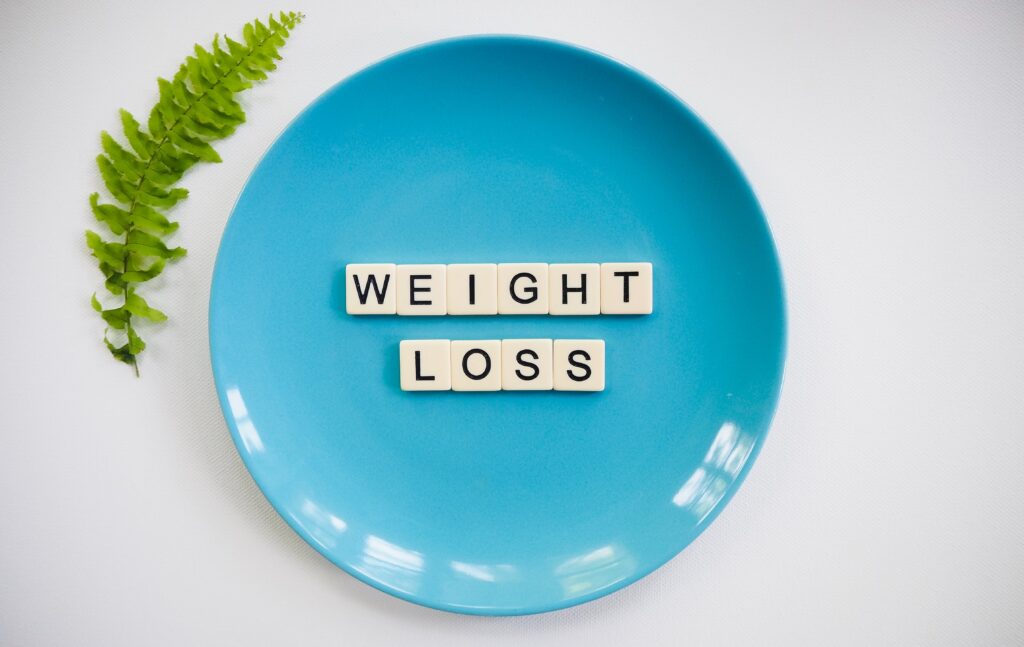Preconceived Notions About Weight Loss

“I have been consistently working out, I’m maintaining a low-fat diet, I have reduced intake, yet I am struggling to see results.”
Sound familiar?
Many of us struggle with these preconceived notions of weight loss. Despite putting in months of intense workouts at the gym and cutting back on food intake without seeing visible results leads us to frustration accompanied by the feeling of remorse and guilt.

It disheartens me to witness individuals putting in significant effort without achieving palpable results.
Let us Decode the factors contributing to weight gain
The culprit is within our bodies. It’s a hormone called Insulin.
No no, certainly Insulin is not our enemy. Insulin is a hormone produced by our pancreas and is released when blood glucose levels are elevated. Insulin plays a significant role in regulating and lowering blood glucose levels.
Now the question emerges: how does this play a role in weight gain?

The issue arises with Insulin resistance when we eat. Food is broken down in the stomach and small intestine and carbohydrates from the food are then converted into glucose which is subsequently distributed to all cells.
Over-eating refined carbs and sugar raises blood sugar causing a spike in insulin production. Through prolonged repetition of this process, cells accumulate sufficient glucose and Insulin resistance to open the receptors resulting in excess glucose stored as fat in the liver which causes fatty liver.

When we eat any type of food, our blood sugar and insulin rise. The Pancreas continues to produce insulin for energy distribution in the form of glucose to cells but it starts to store that glucose in the wrong areas of the body when our cells gain too much insulin resistance.
You might be wondering if I am advising you to cease eating. That’s not the intention at all.
Our bodies are designed for cycles of fasting and feasting. When we are unwell the innate tendency is not to eat as the body tries to conserve energy towards healing which is otherwise used for digestion.
The Decoding is Intermittent Fasting: Our Body’s Reactions During Fasting and Feeding:
During the periods of fasting the body taps into stored fat for energy. With low sugar levels and insulin during fasting the body becomes insulin sensitive. When we break fast after, say, 12 hours the insulin levels are low. Consequently, the next meal results in the production of a smaller amount of insulin leading the body to store it differently in comparison to the fed state.

To paraphrase Dr. Pradeep Jamnadas in his video ‘Fasting For Survival’, the main reason to fast is to get healthily rid of fat. Eating smaller portions throughout the day means you’ll lose more muscle mass than fat and end up feeling miserable. Your metabolic rate will go down, your body will reset itself, and you will gain all that weight back. That’s not natural.
How To Practice Intermittent Fasting:
There are many different ways to incorporate intermittent fasting into your lifestyle. Opt for the one best suited for your routine:
- 12 hours of fasting window and 12 hours of feeding window
- 16 hours of fasting window and 8 hours of feeding window
- 20 hours of fasting and 4 hours of feeding
Those with more experience and extended practice may opt for an alternative day of fasting. Alternate a day of fasting and a day of feeding.
Certain individuals follow a pattern of 5 days feeding and 2 days fasting window.
There are many possible ways of intermittent fasting. It’s not a race or a trendy diet, it’s a lifestyle. Incorporate it into your routine and consistently follow it but remember to always listen to your body, as you understand its signals better than anybody else.

Benefits Of Intermittent Fasting
- The primary focus is weight loss. Adhering to the circadian rhythm, adopting a pattern of eating a few hours before sleep will enable our bodies to facilitate hormonal balance rather than digesting food at night.
- As stated earlier, hormonal balance is crucial to weight loss.
- Lower the Insulin level, and improve insulin sensitivity.
- Growth hormone secretions double after a few days of fasting.
- Autophagy occurs after a certain duration of fasting, wherein old cells in the body die off making for new ones. This process serves as an anti-aging mechanism.
- Reduces inflammation in the body.
Despite the benefits of intermittent fasting, it may not be suitable for everyone. Individuals with a pre-existing medical condition should consult their physician before starting this regimen.
For those new to intermittent fasting, consider gradually extending the fasting and avoid immediately maximizing the duration.
So Intermittent fasting, Balanced Nutrition, adequate exercise, and a positive mindset are the keys to a happy, healthy, and fit body. If you need more information on a Balanced life please go through my previous article.
https://healthgoalsforall.com/a-guide-on-how-to-make-disease-disappear/
Disclaimer: This is not physicians opinion all this information is derived from personal research.
Citation:
The Galen Foundation. (2019, August 16). Fasting For Survival Lecture by Dr Pradip Jamnadas [Video]. YouTube. Fasting For Survival Lecture by Dr Pradip Jamnadas

Pingback: Sugar sweet in taste bitter in health
Pingback: Simple Ways To Achieve Youthful Radiant Skin -
Pingback: No Gut No Glory-Leaky Gut
Pingback: Whats On Your Plate Carbs, Fats and Proteins macronutrients